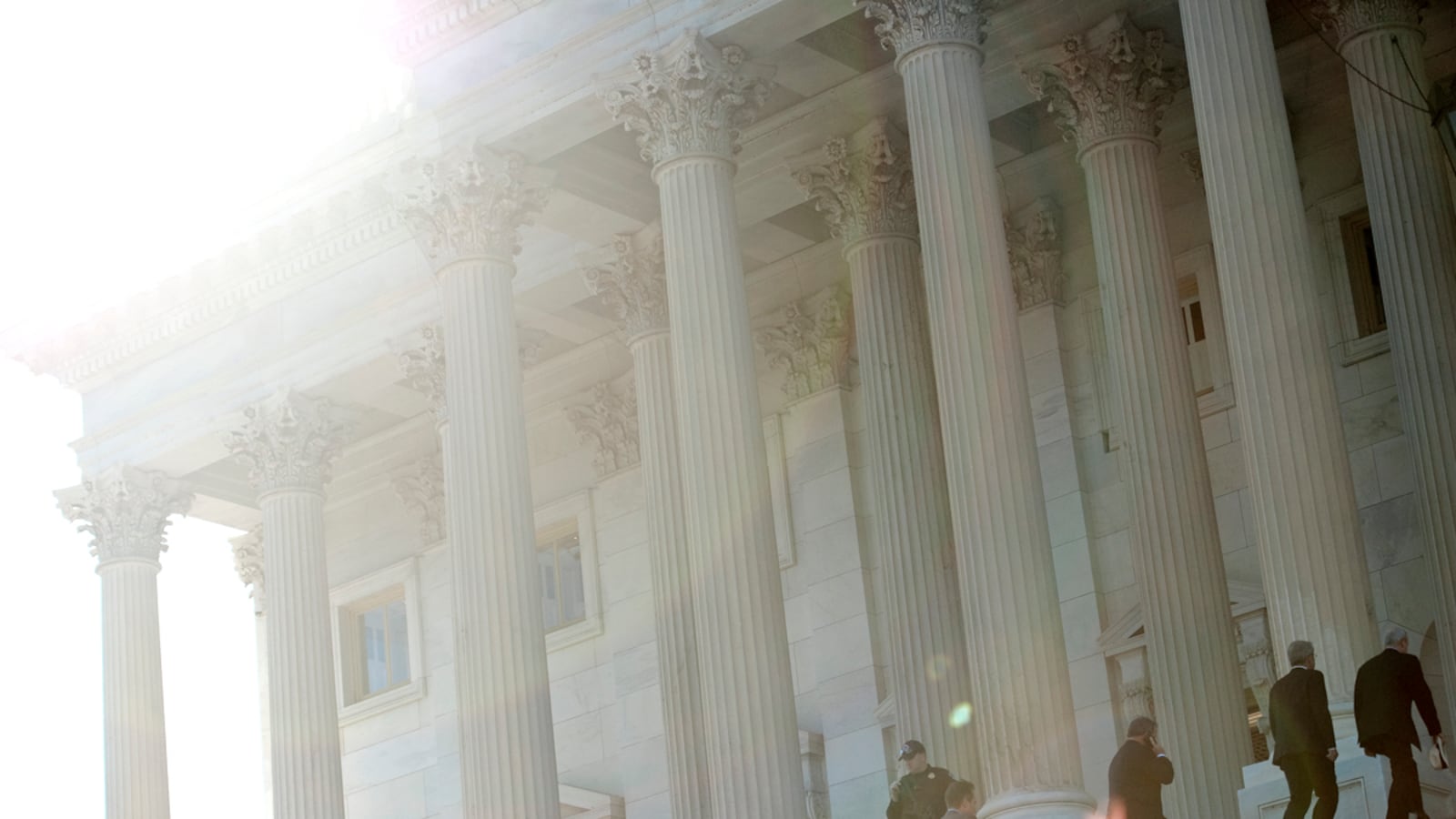Sometimes a story breaks that leads to jaw dropping even among the normally jaded. This past week, a new book by conservative muckraker Peter Schweizer and a memoir by the disgraced and convicted lobbyist Jack Abramoff both shed light on the degree to which members of Congress profited from trading stocks that were directly affected by pending government policy. The insider trading ran the gamut of Republicans and Democrats and in all cases involved knowledge of pending contracts or legislation that would benefit or penalize specific industries. The amounts gained ranged from a few thousand dollars to hundreds of thousands.
As the old cliché goes, the scandal here is what is legal. The SEC and federal prosecutors have in recent years cracked down on Wall Street insider trading with a vengeance. The multi-year prosecution of hedge-fund manager Raj Rajaratnam is only the most high-profile example. Yet insider-trading laws do not apply to what many members of Congress have done. Because their privileged information does not come from company insiders and because congressional representatives are not employees of any public company, their trades do not fall under the definition of illegal insider trading. In short, because they trade on material nonpublic information about spending that they acquire as elected representatives, rather than on material nonpublic information provided by companies, they have not broken the law.
The fact that congressional representatives have a better trading record than “average” investors has been known for some time. Various researchers have shown that over the past years, congressional representatives (and their staffs) outperform by anywhere from 6 percent to 25 percent annually. It is of course possible that the reasons are benign—they trade in industries they know, and they tend to be better educated. But it is more plausible that their advantages stem from their privileged positions as makers of policy.
Let’s say you are a representative who sits on the House Committee on Financial Services, which has been much in the news these past years since the financial crisis. And let’s say you know of provisions in the Dodd-Frank bill about credit-card fees before those are made public or as the rules are being written. That would give you quite the edge trading the stocks of companies such as Visa or MasterCard. Or say you sit on the U.S. Senate Committee on Health, Education, Labor, and Pensions and were aware of pending changes to reimbursements for Medicare and Medicaid. That would certainly be of use in trading HMO stocks such as Aetna or Cigna. And the list goes on and on.

Of course, it is also true—as any investor will attest—that getting the fundamentals of a company right does not guarantee that the stock will trade accordingly. But big headline news such as agricultural spending, health-care budgets, highway bills, and assorted regulations does tend to move stocks in the days after the announcement, and having inside knowledge of what those announcements are, when they will be made public, and what companies will be affected provides a massive edge.
In fact, insider congressional knowledge creates an utterly uneven terrain for congressional representatives and their staffs relative to everyone else. No one employed by a public company or by Wall Street could ever trade on such information without risking increasingly harsh legal action. Yet no law bars Congress from making money from information that no else has, at least not until someone leaks it or an official announcement is made. Given how advantageous such insider information is and the fact that no law bars its use, it’s a wonder there aren’t more congressional trading millionaires.
Americans take delight in skewering political corruption in other societies, whether it is the ill-fated administration of Silvio Berlusconi in Italy, or the never-ending array of kickbacks that bedevil India and Brazil, or the state-business nexus that enriches the connected in China. But if ever there was a case of motes in our own eye, this is it. There have been a few attempts in past years to rectify this congressional insider-trading loophole, to no avail. In 2006, two Democratic representatives (Louise Slaughter and Brian Baird) introduced a bill banning trading on insider knowledge of any pending legislation. It went nowhere. Now there is talk of reviving the bill. It should go somewhere.
Even if there is no stomach for such a bill, there is such a thing as ethical conduct and demanding that elected representatives behave accordingly. Many Wall Street firms, in fact, have stringent ethical guidelines about their employees trading in their personal accounts, and prohibit most activity on the grounds that even the appearance of a conflict of interest or of a questionable information edge is not acceptable for those who may be fiduciaries of other people’s money. Most media companies have similar prohibitions. That Congress has fewer ethical restrictions than either journalists or bankers—neither of whom are held in high public esteem, judging from polls—says something about just how ethically challenged Congress actually is.
In the end, we should expect some baseline ethical behavior from our elected officials, whether or not the underlying behavior is legal. In fact, in a society that criminalizes too many activities, ethics codes are in many instances preferable to laws, assuming that violation of such codes carries significant costs. At the very least, insider trading in Congress should violate ethics and carry real consequences. For now, lacking even that, there is at least the ultimate censure, which is to vote out of office any members who clearly used their privileged access to information to enrich themselves, especially if they simultaneously preached government penury in the face of real and ongoing public need.





